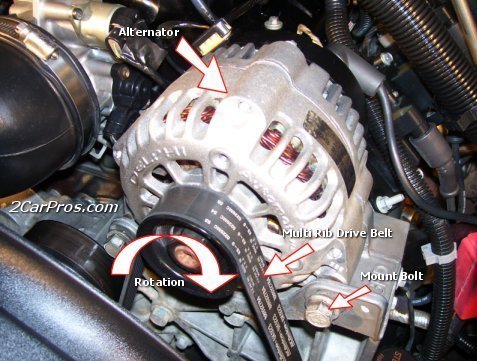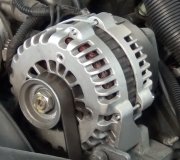First lets clear a few things up so we're talking about the same thing. By "rough to start", do you mean it runs rough when first started or it's hard to get it started?
I'm not familiar with the term "marine terminals". Are you referring to the kind that have a small strap on top to bolt down onto the cable? If so, those are never meant to be a permanent fix, even though most people look at them that way. Since you said "batteries", I'm guessing you have a diesel engine. If that is correct, you definitely don't want those temporary cable clamps.
A battery that's smaller electrically than it should be will not cause much of a problem. If they are getting weak with age, the weather is cold, and the engine is naturally hard to start, a you could be right on the edge of having enough power to crank the engine. Other than that, if it's cranking okay, the size itself isn't likely to cause a problem. What is of more concern is that you found corrosion. That is a sign that a battery is about to fail, typically within the next six months. Also look for that corrosion hidden under the insulation of the battery cables. Ford used to have a lot of trouble with that right at the starter motor.
The generator should not be charging at full capacity. If you have a "Volts" gauge on the dash and it's reading high, suspect a shorted voltage regulator. You can verify that with a digital voltmeter. With the engine running, the battery voltage must be between 13.75 and 14.75 volts. If it's higher than that the water will boil out of the acid in the battery leading to the formation of corrosion on top and the eventual failure of the battery.
You indicated you have a drain on the battery but you want to test for excessive resistance. Those two don't correlate. If the engine is cranking slowly, that is caused by a battery or cable problem, or the charging system is not properly charging the battery. Once a charging problem is ruled out, if the batteries are fully charged, yet the engine cranks too slowly, THAT'S when you want to test for resistance in the cables. The problem is you can't measure the resistance because it's way too small. What you CAN do is a "voltage drop" test that shows the RESULTS of that resistance. You do that with a digital voltmeter while the engine is cranking. Measure the voltage drop across each connection. The maximum allowable per connection is 0.2 volts. Any more than that and the connection must be cleaned and tightened.
Saturday, January 19th, 2013 AT 6:20 AM


